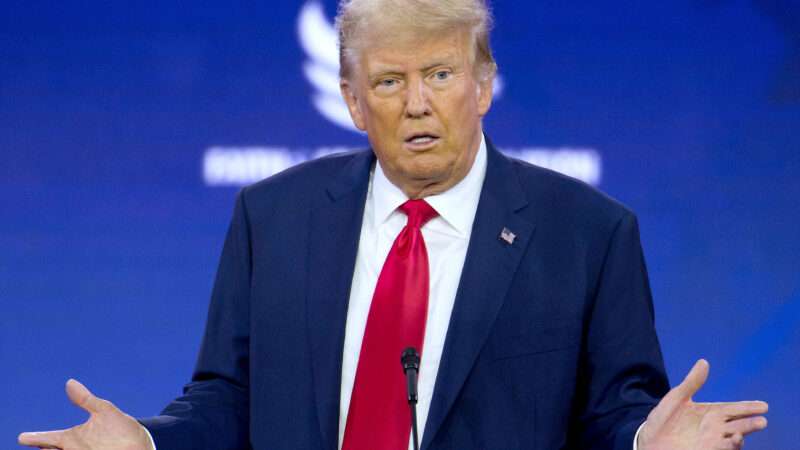
"I wrote the book because I'm hearing every day from evangelical Christians who are exhausted and almost in despair over the state of American Christianity," Russell Moore told Semafor this week of his newest volume, Losing Our Religion. "At the same time," he continued, "I get asked by non-Christians, as a man said to me as recently as yesterday- 'What the hell is wrong with you people.' An evangelical America in crisis isn't good for anybody."
Moore is editor in chief at Christianity Today—the flagship evangelical magazine, founded by Billy Graham, where I've had a column for several years and am starting a full-time role next week—and, before that, he spent years in leadership in the Southern Baptist Convention, the nation's largest evangelical denomination. He's uniquely well-positioned to observe the exhaustion he describes among American Christians, like me, who weren't among the roughly 80 percent of white evangelical voters to back former President Donald Trump in 2016 and 2020 and who remain disconcerted that Trump drew evangelical support at all.
With another presidential election upon us, it's hardly worth asking the question: Will those evangelicals go for Trump again? Barring some major unforeseen event, we know the answer already: They will.
And that sucks! It sucks that eight years hasn't changed anything, that we're still seeing such a thorough betrayal of the values evangelicals long purported to hold, that this alignment turns on such a malformed vision of Christian engagement in politics, that it further entrenches an idolatrous civil religion, that it's such a foregone conclusion. At this point, I'm weary of even thinking about Trump and evangelicals and all that connection entails.
Yet, in a more rational mindset, I know that eight years is not really that long. I know that a culture as big—depending on how you measure, evangelicals comprise around 25 percent of the American public—and varied and important as this one can't turn on a dime.
In retrospect, the evangelical embrace of Trump, shocking as it was, had long roots. The mycelium was already there, and the mushrooms popped up once the weather was right. In the long run, that blight may yet wither.
But long-run hope doesn't help for this election, and, unfortunately, everyone has to live with electoral results of even a temporary evangelical madness. It doesn't take long for a voting bloc tens of millions strong to have significant effects, for good or ill. "When the righteous thrive, the people rejoice; when the wicked rule, the people groan." Or, as Moore observed, "An evangelical America in crisis isn't good for anybody."
Within evangelicalism, the answer is to continue efforts, like Moore's, to persuade our coreligionists that something has gone awry among us. Outside evangelicalism, though, there's something we should be doing, too: shaping our government to better weather this kind of cultural storm.
White evangelicals' fascination with Trump won't be the last time a large subset of the American public, enough to swing elections, becomes enthralled by an authoritarian, incompetent, corrupt, and/or demagogic politician. Trump is singular in some ways, yes, but he's not that special.
Throughout American history, and certainly over the last century, most politicians with a national following have fit some or all of that list of descriptors some or all of the time. Evangelicals and Trump are in the spotlight now, but soon enough it will be some other group and some other politician.
The sheer power of the office of the presidency makes it particularly likely to attract the worst of us. This is a kind and degree of authority such that any who might wield it well wouldn't dare to take it up.
The safeguard we need—as can so often be said in American political commentary—is less power on offer. That means stronger rule of law, more limited government, an executive branch trimmed to a more proportionate size, and stricter protections for individual liberties of conscience, speech, assembly, and more.
It was a common observation during Trump's first term that his short attention span and consistent incompetence were a saving grace. He often had terrible policy ideas, but he also had terrible follow-through and understanding of the American constitutional system, which in practice limited how many of his terrible ideas were actually implemented.
That was a lucky break, so far as it went, but we can't be confident our luck will hold. Trump himself would likely be more effective in implementing his policies in a second term, and future bad presidents will be more competent still.
The point of meaningful structural reforms is to render any president even more constrained than Trump turned out to be, and, crucially, to build that constraint into law rather than relying on a busy TV-watching schedule to eat up "executive time."
American politics will never be without some madness, hopefully temporary, like that of evangelicalism today. We can't avoid it. But we can better contain its chaos.
The post No Matter What Trump Does, Evangelicals Still Love Him appeared first on Reason.com.







